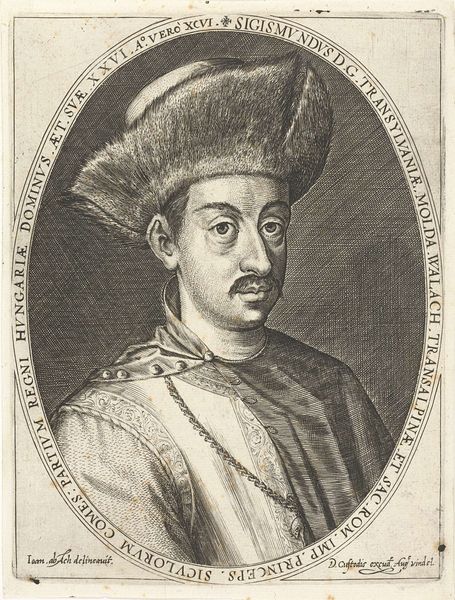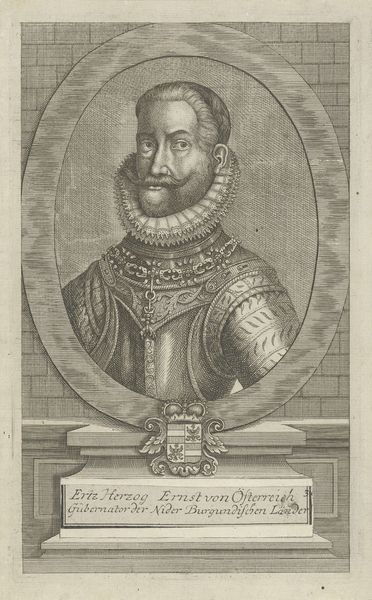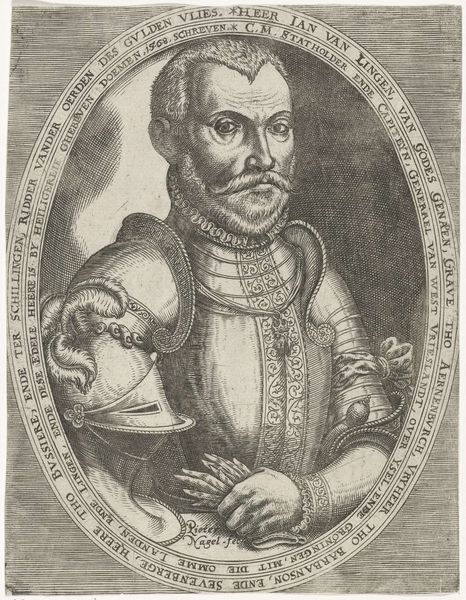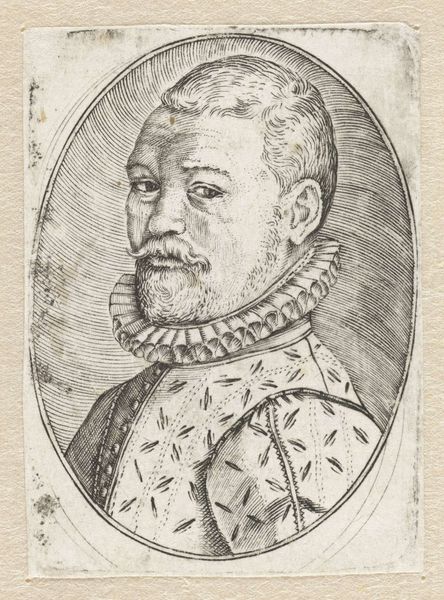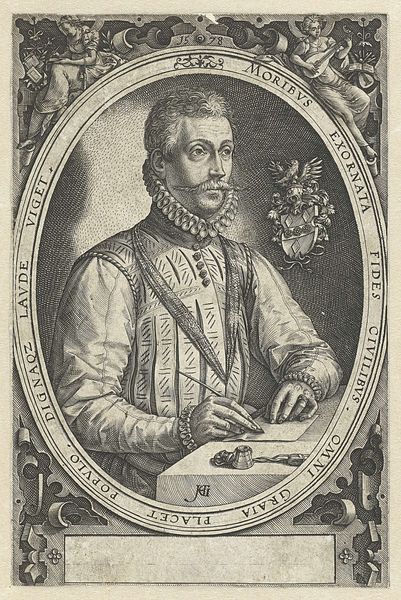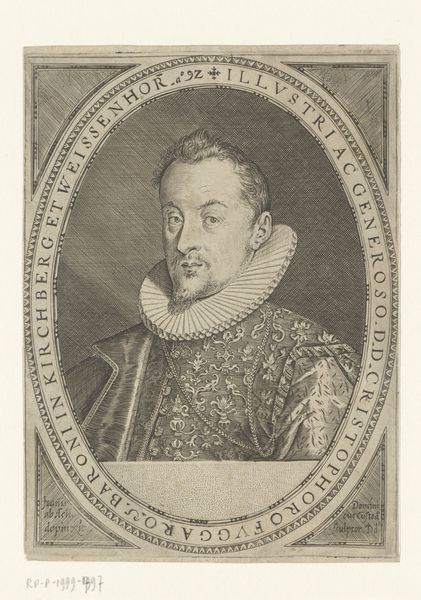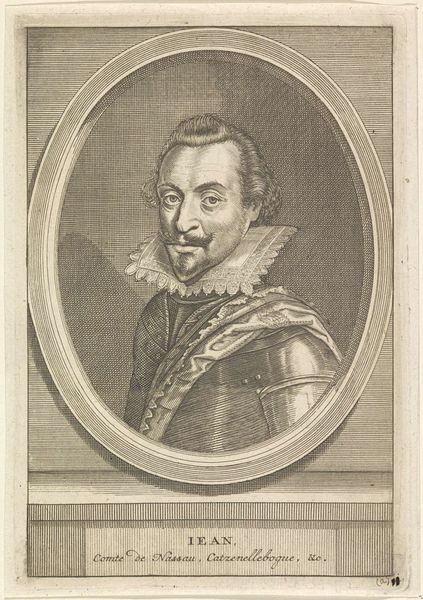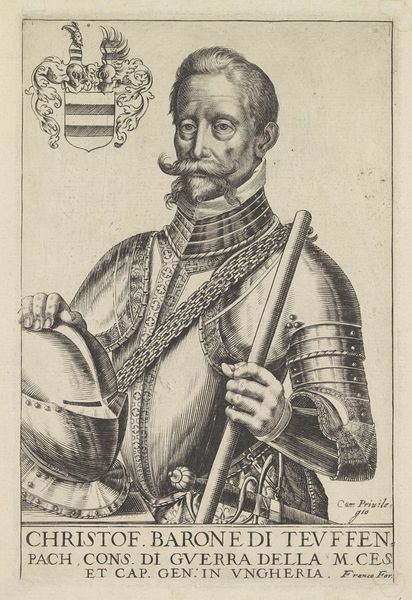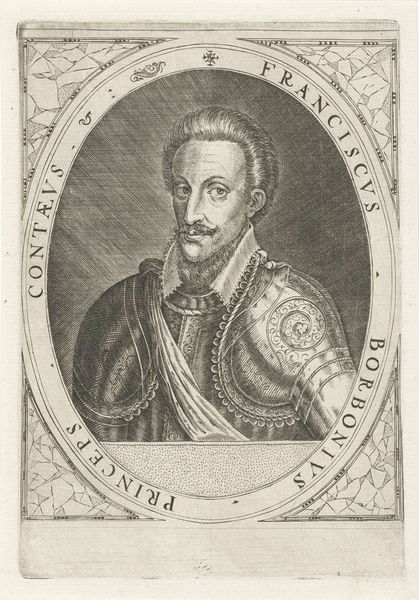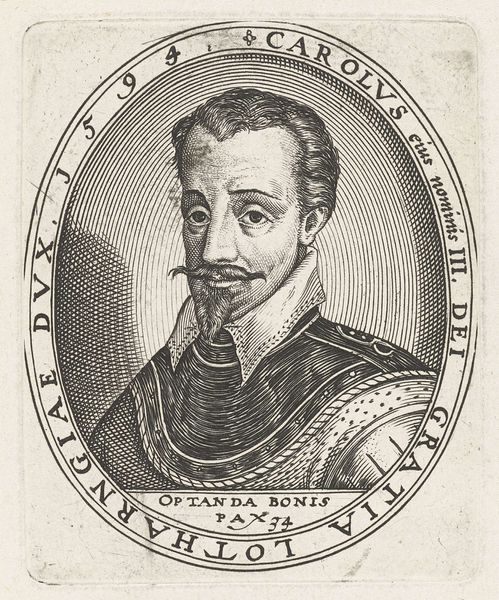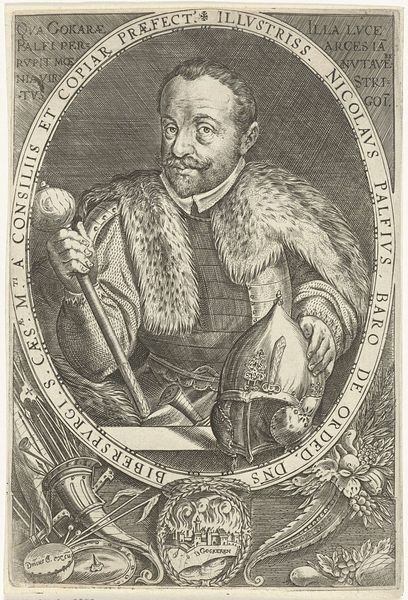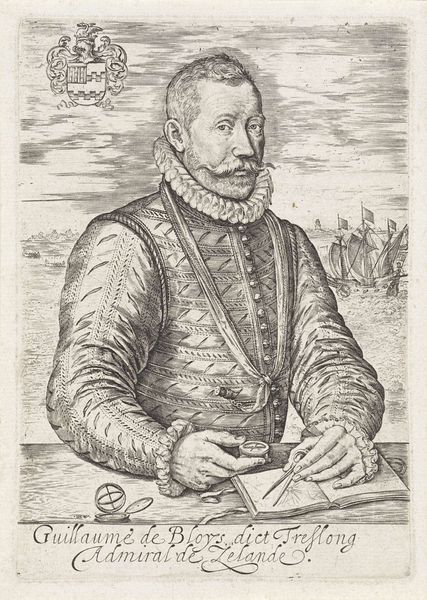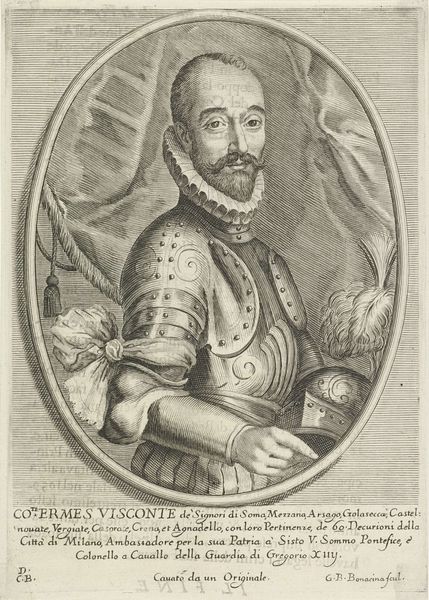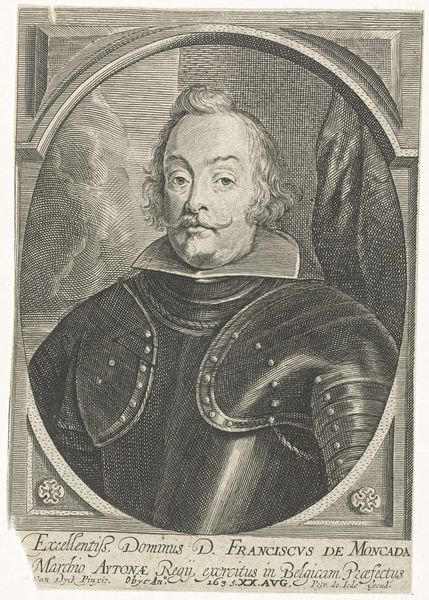
print, engraving
#
portrait
#
aged paper
#
baroque
# print
#
old engraving style
#
personal sketchbook
#
portrait reference
#
portrait drawing
#
engraving
Dimensions: height 162 mm, width 119 mm
Copyright: Rijks Museum: Open Domain
Pieter de Jode II created this engraving of György II Rákóczi, Prince of Transylvania, sometime in the 17th century. Consider how portraiture was a key tool for establishing status and power in early modern Europe. This image would have circulated within a network of political and cultural elites. Note the Latin inscription. Latin was the language of scholarship and diplomacy, marking the Prince as an educated and sophisticated leader. The chain and patterned clothing would also have communicated his high status. But also, it is important to remember the role of the printmaker in all of this. De Jode was a successful artist working in Antwerp. By reproducing and circulating images of political figures like Rákóczi, printmakers helped to shape public perception of these individuals and their realms. Historians consult a range of sources, from diplomatic correspondence to fashion history, to understand the full context of images like this. The meaning of art is always contingent on its social and institutional context.
Comments
No comments
Be the first to comment and join the conversation on the ultimate creative platform.
